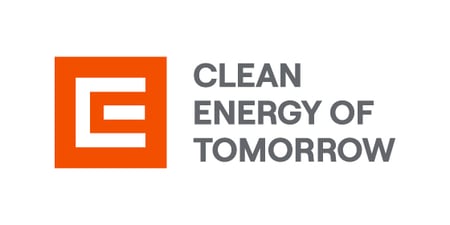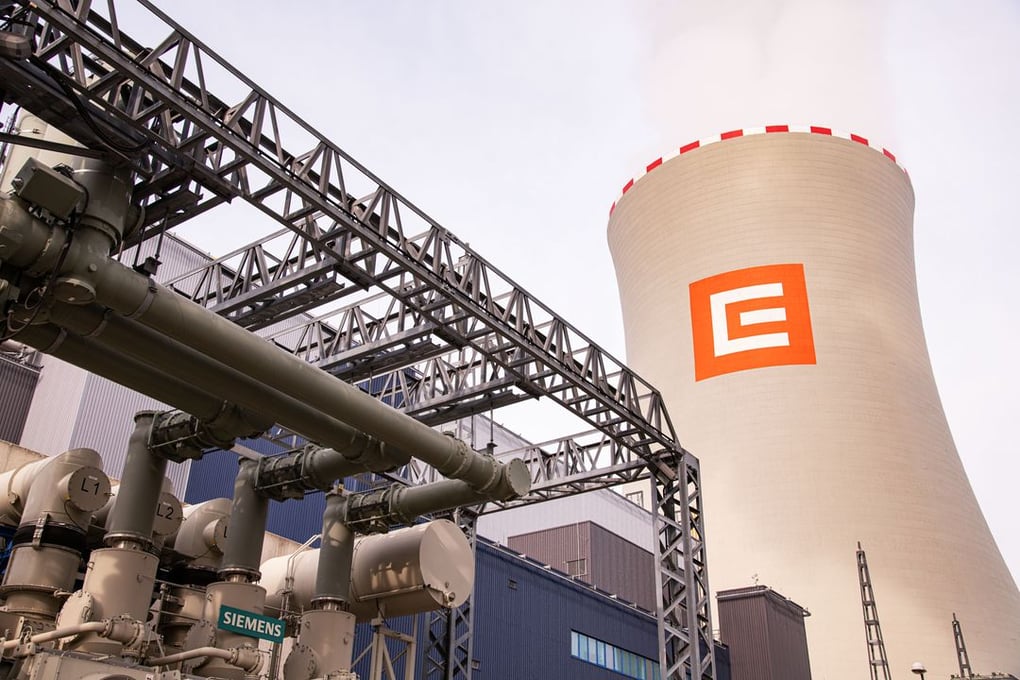
Client:ČEZ Prodej
Region:Europe
Industry:Energy and Utilities
ČEZ Prodej keeps Czech energy flowing with automation

4.5M
automated cases in 2023
250,000
machine hours of robot work
85
end-to-end processes running across 30 systems using automation
Client Overview
ČEZ Group is one of the largest companies in the Czech Republic and a leading European energy firm in western and central Europe. One of the key businesses in the Group is the energy supplier ČEZ Prodej. It delivers electricity, gas, photovoltaic, and heating systems, along with related services to households throughout the nation. It has 1,100 employees.
The modern world is nearly entirely reliant on a safe and stable supply of energy. Gas and electricity power our lives, work, and wellbeing. We expect nothing less than near-perfect provision while also looking for ever-increasing levels of sustainability. In the Czech Republic, this huge responsibility falls on businesses like ČEZ Prodej. It serves millions of household and small enterprise customers, also acting as a provider of last resort, able to maintain energy provision should other suppliers fail.
In doing so, it must follow strict regulations set by the EU. In 2005 and 2006, the entire European energy industry was mandated to separate distribution processes from sales in a policy called unbundling. The aim was to ensure companies controlling the energy infrastructure didn’t have an unfair or monopolistic advantage in supplying energy to end customers.
The spark that ignited automation
When unbundling took place, ČEZ Prodej’s IT systems required separation. Martin Uher, Process Automation Manager, says, “The business had to undertake a generational change of core systems. The project was very difficult and wildly complex. This culminated in 2016, when the new solutions were put into operation.”
This was the spark that ignited a passion for automation. “The new technology illustrated that we need automation for our future and we have huge opportunities for it,” Uher adds. “In the following year, we began working with consulting firm EY to trial automation and by June selected UiPath to provide the technology we’d need to succeed, both in ČEZ Prodej and the wider group.”
A pilot project ensued, supported by a small team of two developers and two analysts. By the end of the year, automation was gaining pace, with 14 robots running on the UiPath Business Automation Platform. The company also invested in UiPath Orchestrator, which allowed Uher and his growing team to provision, deploy, trigger, monitor, measure, and track its automations.
Robots to the rescue
At the start of 2019, the ČEZ Prodej team created a center of excellence (CoE) to implement automation across the business and ensure best practices were developed and adhered to. Over the coming months, it became an embedded part of running the company.
Which was vital preparation for when an energy crisis hit the country in 2021. “Bohemia Energy was a large, independent electricity and gas supplier in the Czech Republic with a strategy of securing energy for its customers based mainly on spot prices,” Uher explains. “The business couldn’t cope with surging energy costs across the continent caused by low stocks of gas, infrastructure issues and high demand.”

It was an unprecedented situation, with nearly one million customers losing their energy provider. As the supplier of last resort, ČEZ Prodej stepped in. “There was no choice for the company—it was a legal obligation that presented extreme complexity at huge scale.”
The biggest challenge was customer acquisition.
We needed to onboard 340,000 new clients at an incredible pace. We built an online form in five days where new customers could add their details. Then our robots collected their data and added it to our SAP system, allowing people to switch their energy supply to us. We were the first provider in the Czech market to enable a change of supplier online.
Martin Uher • Process Automation Manager at ČEZ Prodej
“We also needed to communicate clearly with these new customers,” Uher adds. “This required robots to triage emails to the right teams and support with replies. An added complication was that every small change to a contract required a physical letter to be sent to a customer. We automated the process.”
Within three months, most customers were transferred, and the situation stabilized dramatically. It was a huge success. “It was a very quick response. We became famous for our speed. Many people in the company have realized how crucial it is to react quickly and how RPA technology can help us do so.”
When asked if he could have achieved this without automation, Uher simply says, “No. The task was so big, and the response needed to be so fast, that manual processes just wouldn’t have worked.”
It was a watershed moment for the CoE, cementing it as a strategically vital part of the business—and arguably—the country. The team has now grown to nine developers and analysts, serving more than 15 internal customers, with automations running 24 hours a day.
Incredible impact
The results are impressive. The company now has 85 large end-to-end processes running across 30 systems. Every year, the volume of automatically cleared requests grows. In 2023, ČEZ Prodej handled 4.5 million such cases. During the year in which the Bohemia Energy crisis unfolded, automation completed an eye-watering 10 million transactions.
Reflecting on the impact automation has made, Uher highlights several important uses.
Our biggest automation deals with communications. About 95 percent of incoming emails are processed using UiPath. That's around 50,000 emails per month—even more during heavy traffic.
Martin Uher • Process Automation Manager at ČEZ Prodej
“We also use automation extensively in our back-end services, processing things like changes customers make to their account online.” With millions of account holders, this is vital. “We also use automation to undertake strategic actions, such as converting customers to electronic invoices. Robots support us with data cleansing and internal processes too. This includes HR and software testing.
A plan to be proud of
ČEZ Prodej has an ambitious plan. “We have a backlog of opportunities that we’re working our way through,” Uher says. “We’re focussed on digitizing customer services, further automating our IT testing and data cleansing, and incorporating AI into our work. The goal is to digitize all key customer processes by 2025.”
But this success has been a hard one. At the start, people worried about the impact robots would have. “Interestingly, much of the worry was stoked by negative media coverage of robotics and automation,” Uher remembers. “People had heard horror stories and worst-case scenarios.”

“We got them on-board by showing colleagues how automation could help. We illustrated that it could make their jobs easier and give them more time. Importantly, the technology hasn’t led to a single job loss. It’s used primarily to improve work and significantly increase efficiency.”
The CoE also included staff in the development process of automations, so they became stakeholders with an active voice rather than passive recipients of the technology. “Staff defined business needs and descriptions of processes. They tested integration of automation in their work. Essentially, we embraced employees and put them in control.”
Important lessons
Uher says ČEZ Prodej’s success is based on some important principles, which are relevant to other companies considering automation. “Only use the technology in suitable use cases,” he confides. “The process needs to be stable and with clear business logic and rules.”
He adds that it’s vital to spread automation across the business, rather than a single department. This ensures wider buy-in. “It’s vital to get management to support initiatives too. That means having data and evidence to show outcomes.”

Finally, he says, “Create a strong team with full responsibility for automation and establish good governance for its development.” This is a point Uher pauses at.
For me, the thing I’m most proud of isn’t the number of automations or the volume of tasks they’ve completed. It’s been building the team. Their dedication and ability to embed a new technology in the business has been fantastic.
Martin Uher • Process Automation Manager at ČEZ Prodej
Which is vital. Because when it comes to delivering energy, customers expect nothing less than near-perfect provision. Without the drive and passion to achieve that through automation, it simply wouldn’t happen.
Ready for your own case study?
Speak to our team of knowledgeable experts and learn how you can benefit from agentic automation.
